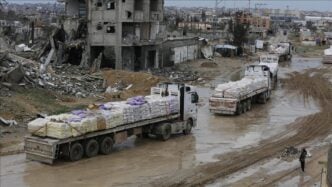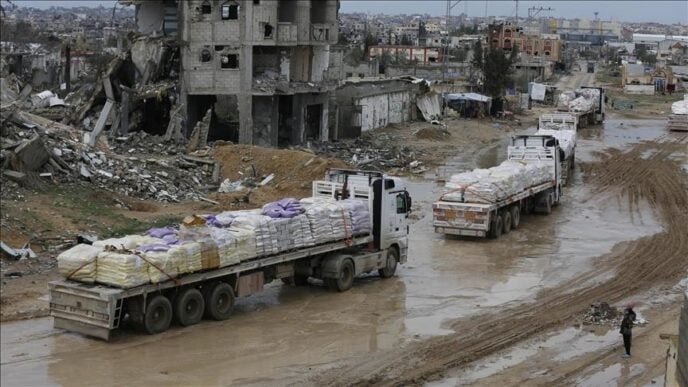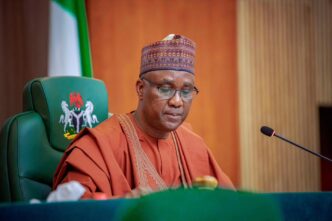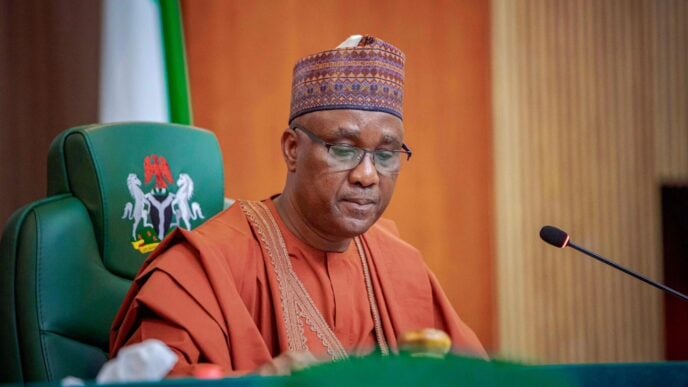BY GBOLUWAGA OLAOMO
Food insecurity is no longer a rural problem; it is now an urban emergency. Food insecurity is no longer a rural problem; it is now an urban emergency. Across Nigeria, an estimated 26.5 million people are at risk of hunger between June and August 2024, according to the United Nations’ FAO. The pressure is even greater in cities such as Lagos. Over 21 million people live here, yet the state has limited farmland. Feeding this many people daily, consistently, and affordably is a growing challenge, and cracks are showing.
Markets are full of produce, but food prices remain high. Farmers across Nigeria are harvesting crops, but much of the food never reaches Lagos. It is lost along the way due to bad roads, poor storage, heat damage, and weak logistics. Some buyers cannot meet these costs. Others simply do not have reliable ways to move food in bulk. Meanwhile, urban households continue to struggle with rising living costs.
For years, the approach has been short-term, relying on relief drives, donor grants, and subsidies. These efforts help, but they do not fix the underlying issues. What is needed is a long-term plan, and Lagos may finally be onto something.
Advertisement
Recently, the state government launched the Produce for Lagos initiative, backed by a ₦500 billion Offtake Guarantee Fund. However, this is not just about moving food from farms to markets. It is about building a system that works from start to finish — from the farmer in Benue or Kogi to the seller in Mushin or Mile 12 and ultimately to the plate on a family’s table.
Here’s how it works: Lagos will back private sector players — buyers, aggregators, and transporters — who help bring food into the city. If they face losses or struggle to secure payments, the fund steps in. This reduces the financial risk for all involved. Farmers can grow with confidence, knowing that there is a guaranteed market. Buyers can commit to bulk purchases. Transporters can be scaled up. In short, it adds a layer of certainty to an uncertain sector.
However, the plan goes beyond money. Lagos is also investing in infrastructure to support food flow. Over 150 new trucks, cold storage units, and a massive food logistics hub near Epe are being developed. Perishable food that used to rot in the sun can now be stored and transported more efficiently. This means less waste, better quality produce, and fairer prices for both farmers and consumers.
Advertisement
One of the smartest parts of the plan is that Lagos recognises that it cannot go it alone. The state is actively partnering with others, including Niger, Taraba, Ogun, and Kogi, to source food from where it grows best. These states supply the produce, and Lagos supplies the market. It is a practical, win-win partnership.
This is what real food security looks like: not just feeding people once but creating a system that feeds them every day, reliably, affordably, and at scale. This means building roads, writing contracts, and supporting businesses that move food, not just grow it. This means turning state policy into real delivery, not slogans.
The benefits are extensive. Economically, the initiative supports jobs in farming, transportation, warehousing, and sales. Socially, it eases pressure on households by stabilising food access. Environmentally, it reduces waste and avoids unnecessary travel. It is a plan with roots and reach.
The success of Produce for Lagos will depend on how well it is implemented. Transparency, clear oversight, and strong execution are essential. However, if it works, Lagos will not only feed itself better. This could offer a working model for cities across Africa facing the same food challenges.
Advertisement
Hunger is not just about a lack of food. It is about the lack of a system that gets food where it is needed, every single day.
Gboluwaga Olaomo is a PhD Candidate in International Development. He writes from England, UK, and can be contacted via [email protected]
Views expressed by contributors are strictly personal and not of TheCable.











